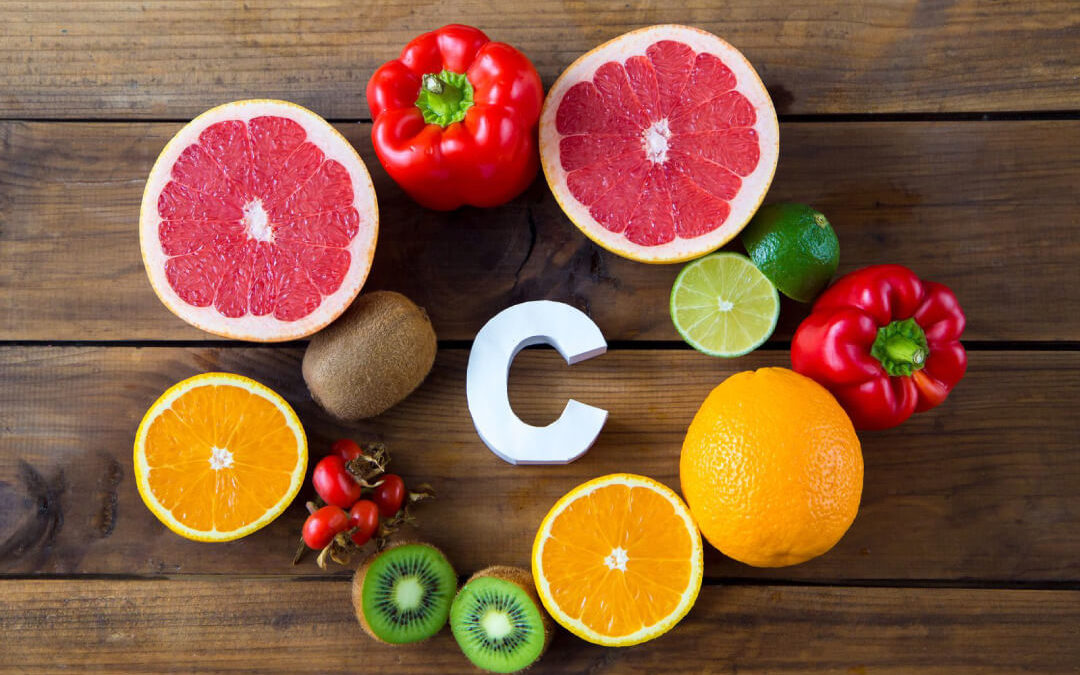What’s the first thing that comes to mind when hearing “Vitamin C”?
—Oranges, right?
But Vitamin C is A LOT more than just that.
You are about to learn all the different types of Vitamin C, the right doses, where to obtain it, and most importantly, why your body needs it, and therefore, why you must consume it daily.
Vitamin C, also known as ascorbic acid, is a vital nutrient for your health for multiple reasons. Let’s find out why.
Why is Vitamin C so important?
- It acts as an antioxidant helping to protect cells from damage.
- It boosts your immune system.
- It helps tissue and bone grow and repair themselves.
- It protects you from cardiovascular disease.
- It can help lower the risk of cataracts.
- It is vital for the production of collagen.
- It enhances the absorption of iron.
- It helps prevent infections.
The human body is not able to produce Vitamin C by itself, nor can it store it because Vitamin C is water soluble. This is why you must consume it daily either in your diet or through vitamin supplements.
Different types of Vitamin C
Ascorbic acid: it is naturally found in food (fruits and vegetables), and it is easily absorbed through the bloodstream.
Foods high in Vitamin C: Red pepper, tomatoes, kiwifruit, oranges, guavas, strawberries, snow peas, brussels sprouts, spinach, cabbage, winter squash.
Mineral ascorbates: it’s the ascorbic acid tied to additional minerals in multivitamins, such as magnesium, chromium, and zinc.
These forms of supplements are known to be better tolerated by people with stomach issues.
Time-release Vitamin C: This tablet form releases small doses of Vitamin C throughout the day without having to take multiple tablets.
Non-acidic type: Some stomachs don’t tolerate plain Vitamin C acid. Sodium ascorbate and Calcium ascorbate combine the sodium or calcium molecule with the ascorbic acid to minimize the acidity.
Vitamin C supplements are available in tablet, powder, liquid, chewable or gummy form, and they are all equally effective. Vitamin C intake will vary according to age, sex, health conditions, and supplement preference.
Dosage according to age
- Children:
- 1–3 years 15 mg
- 4–8 years 25 mg
- 9–13 years 45 mg
Vitamin C is essential for the development of children. They should consume most of their dose through fruits and vegetables, but when they are picky eaters, a liquid or gummy Vitamin C supplement is recommended.
- Adults:
- Adults (men) 90 mg.
- Adults (women) 75 mg / 80 mg (pregnant).
Only 10% to 20% of adults get the proper amount of fruits and vegetables daily, this is enough reason to include chewable Vitamin C tablets, or any other supplement in their diet.
Older adults:
With age they become more susceptible to illness which is why they need Vitamin C the most. An adult Multivitamin supplement will help prevent osteoporosis, macular degeneration, and heart disease.
Vitamin C is a must for your health. Remember, if you are not able to consume the required servings of fruits and vegetables, a Vitamin C supplement will always be your best choice.


